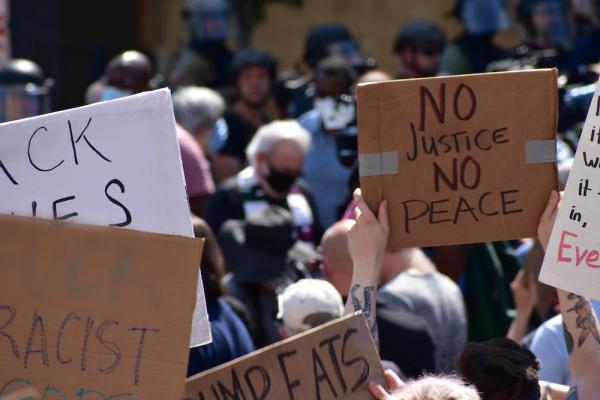Jun 4, 2020
Eddie Glaude has rightly named the violent White House walk to St. John’s as “dictatorial theatre.” The words that came to mind for many of us were sacrilege and blasphemy. Here's the dictionary's definition of blasphemy: "Impious utterance or action concerning God or sacred things." Another word that came to mind was authoritarian. At the epicenter of political power in the United States stands a little church that Donald Trump has decided to violently use — and now St. John’s stands inside a police perimeter surrounding that seat of power.
Read the Full Article

Already a subscriber? Login
